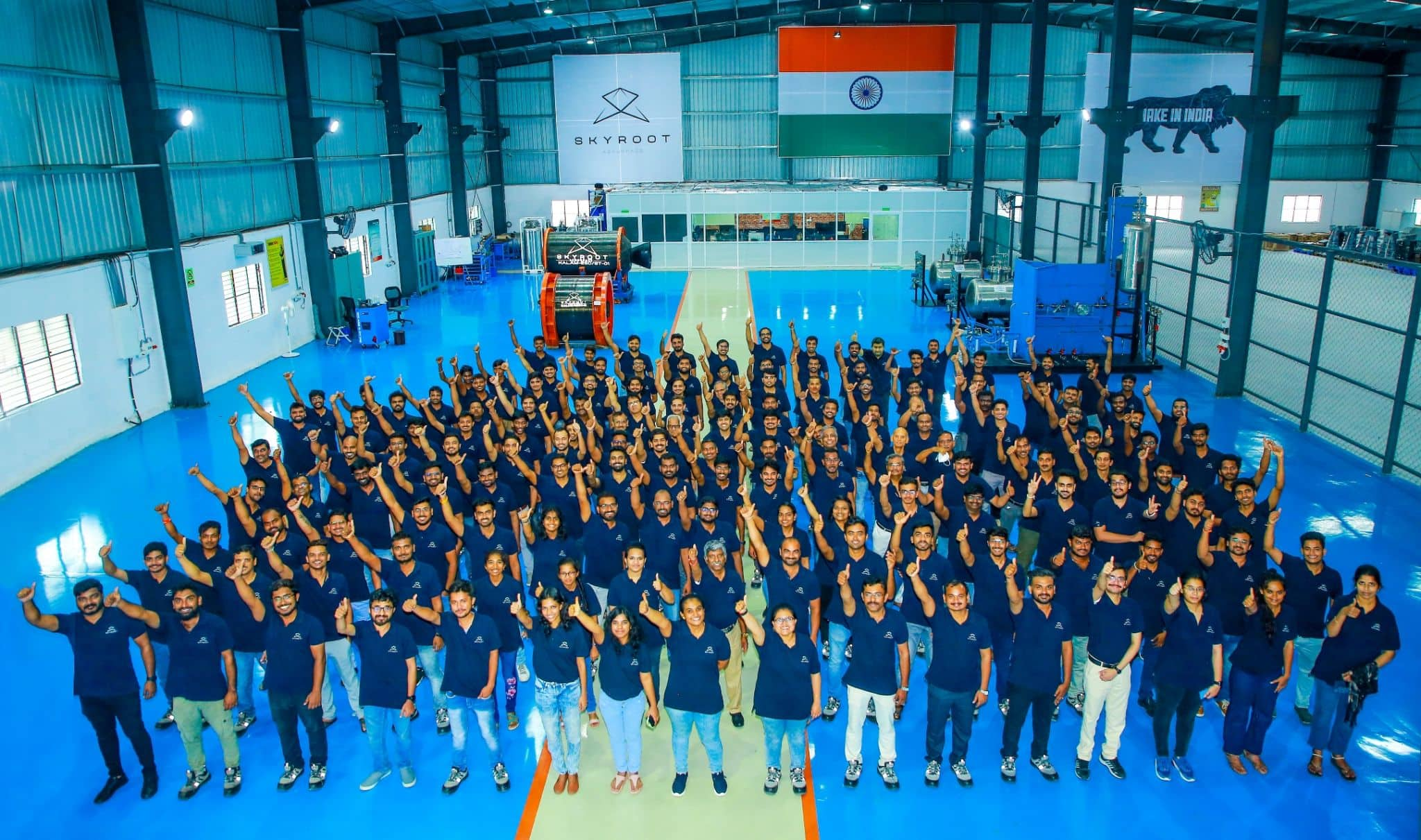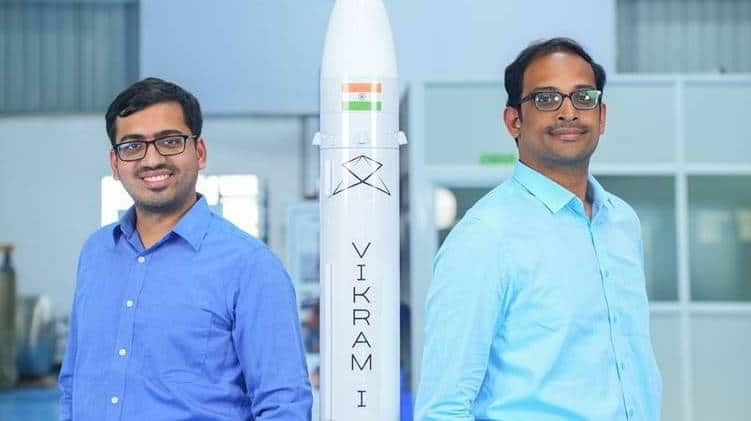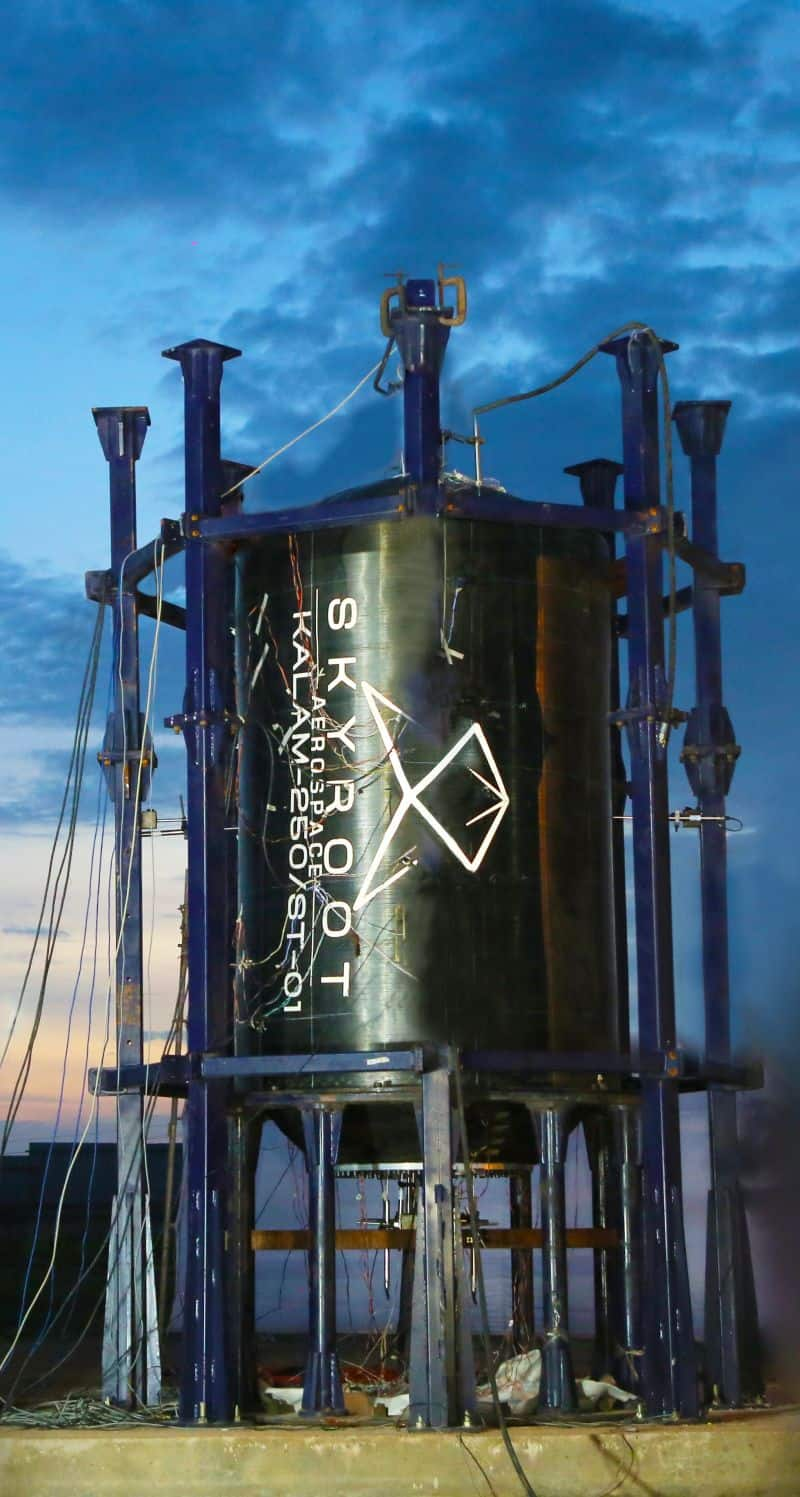



When Pawan Kumar Chandana and Naga Bharat Daka decided to quit their jobs at the Indian Space Research Organisation (ISRO) and set up a space tech start-up, the future seemed hazy.
The two Indian Institute of Technology (IIT) alumni were starting Skyroot Aerospace in 2018 when there were almost no private space players in India and ISRO was the only doyen.
Four years on, their startup is set to launch India's first privately-manufactured rocket from the Satish Dhawan Space Centre in Sriharikota, Andhra Pradesh on November 18, a giant stride for the country's space ambitions.
Named after the father of India's space programme Vikram Sarabhai, the sub-orbital solid-stage rocket, made of carbon composite with 3D-printed motors, would carry three customer payloads.
Dubbed Mission Prarambh (start), the event compares with Elon Musk's SpaceX launching the first privately developed liquid fuel rocket to orbit the Earth in 2008.
While India's space programme is considered to be one of the most successful in the world, it has largely lagged in furthering the private space sector compared to other countries such as the US, making the Skyroot launch a milestone for the country.
How did it start?For 32-year-old Chandana, the fascination with rocketry and space science began at IIT-Kharagpur where he was studying mechanical engineering (dual degree).
"We always used to watch the news of ISRO's launches. It was fascinating for me as a mechanical engineering student that a complex machine built by humans was going to space," Chandana told Moneycontrol.
For his master's, he worked on a project for the National Aeronautics and Space Administration (NASA) and was also working closely with ISRO at the IIT's cryogenic engineering centre.
Chandana and Daka, who graduated at the same time, were hired by ISRO in 2012 when the space agency went to their campuses for placements. Daka was a student of IIT-Madras.
 Skyroot Aerospace employees at their factory at Adibatla, on the outskirts of Hyderabad
Skyroot Aerospace employees at their factory at Adibatla, on the outskirts of Hyderabad
They got to know each other at the Vikram Sarabhai Space Center of ISRO, where Chandana worked as a scientist and Daka as an avionics engineer.
"I was working on launch vehicles for almost six years. I was part of the GSLV Mark-3 program, which is the largest rocket ever built in the country," Chandana said.
It was at ISRO, Chandana said his interest in rockets increased "100 times".
Chandana's inspiration, apart from Sarabhai (and more than Musk) is Wernher von Braun, the German-American aerospace engineer who built the first rocket that went into space and also the rocket that put the first man on the moon.
Spotting the opportunityWorking at ISRO in 2018, Chandana and Daka were also keenly observing the momentum in the space commercial industry internationally and were besotted with the idea of developing something similar in India.
"India was one of the top five spacefaring nations in the world. We had everything — the ecosystem, technology and progress. We were the most cost-efficient spacefaring country in the world," explaining his thought behind the idea of establishing Skyroot.
"So there was naturally a lot of good demand in the market, especially for small satellites. We saw a great opportunity because our space ecosystem was cost-effective and our country already had the necessary tech," he added.
Though Chandana and Daka knew that opportunity was there, they were also aware of the lack of space policy in the country at that time. Space activities were largely limited to ISRO and space tech startups were mostly unheard of.
 Pawan Kumar Chandana and Naga Bharat Daka of Skyroot Aerospace
Pawan Kumar Chandana and Naga Bharat Daka of Skyroot Aerospace
So, they took the plunge in the hope that the government, aware of the growing number of space tech players, would come up with policies that can open up the sector.
"It was a chicken and egg problem. Unless companies come, there won't be a policy. So we were one of the first few companies to take a leap of faith," the Vishakhapatnam native said.
The challengesOne of the major challenges they faced after establishing Skyroot was raising capital and hiring talent. "You cannot put in personal capital for building rocket companies. It is impossible. You need a good kickstart — the right set of capital from the right investor," he said.
This was when they met Myntra founder Mukesh Bansal, who is the CEO of cult.fit. "That connection really worked out well and he happened to invest. That was the largest funding round in the space sector," he said.
In mid-2018, Bansal through his incubator Meraki Labs invested $1.5 million into Skyroot and currently serves as a board member for the startup.
After a couple of years, Skyroot raised further capital of $11 million in a series A funding, in a round led by Greenko Group founders Anil Chalamalasetty and Mahesh Kolli.
Recently, they raised a series B funding of $51 million from Singapore-headquartered GIC, the largest funding round ever in India's space tech sector. GIC India's director Mayank Raway joined Skyroot's board.
 Kalam-250’ - the 2nd Stage of Skyroot Aerospaces launch vehicle Vikram-1
Kalam-250’ - the 2nd Stage of Skyroot Aerospaces launch vehicle Vikram-1
Chandana said, "So every round, by raising capital we were breaking the ceiling. That was really tough — to be the first one to make people understand, you know, to have the kind of risk appetite.
And, of course, finding the right talent also was pretty difficult, because most of the talent of the sector is in the government," he said.
As of now, Chandana and Daka are racing against time to make sure all systems are in place for the launch, and also simultaneously handling the new-found attention.
Skyroot Aerospace's office in Kondapur, Hyderabad, too has the look and feel of space. Painted largely in white and blue, the office space, apart from a common working area, has numerous cabins stacked one after the other.
Each of these cabins has framed pictures of significant space and rocket science personalities, including CV Raman, APJ Abdul Kalam and Vikram Sarabhai. Their launch vehicles Vikram-S and Vikram I/II/III are named after Sarabhai.
Gearing up for the event"We never expected it to be considered such a big event. We were announcing a milestone and it blew out of proportion," Chandana said.
He is excited about what November 18 will hold but is also wary of the history of first launches and how they tend to fail. "Rockets are very, very notorious for blowing up," he said as he stressed the need for focus and attention to details regarding the rocket.
First launches by private space companies, as well as behemoths like NASA and ISRO, have often failed. Musk's SpaceX was only able to launch Falcon 1 into orbit after three failed attempts.
With increased media glare and attention for the launch, Chandana said the last few days have been hard and has now found solace in the lack of network connectivity at Sriharikota, which has been helping him to focus on the launch.
Discover the latest Business News, Sensex, and Nifty updates. Obtain Personal Finance insights, tax queries, and expert opinions on Moneycontrol or download the Moneycontrol App to stay updated!
Find the best of Al News in one place, specially curated for you every weekend.
Stay on top of the latest tech trends and biggest startup news.